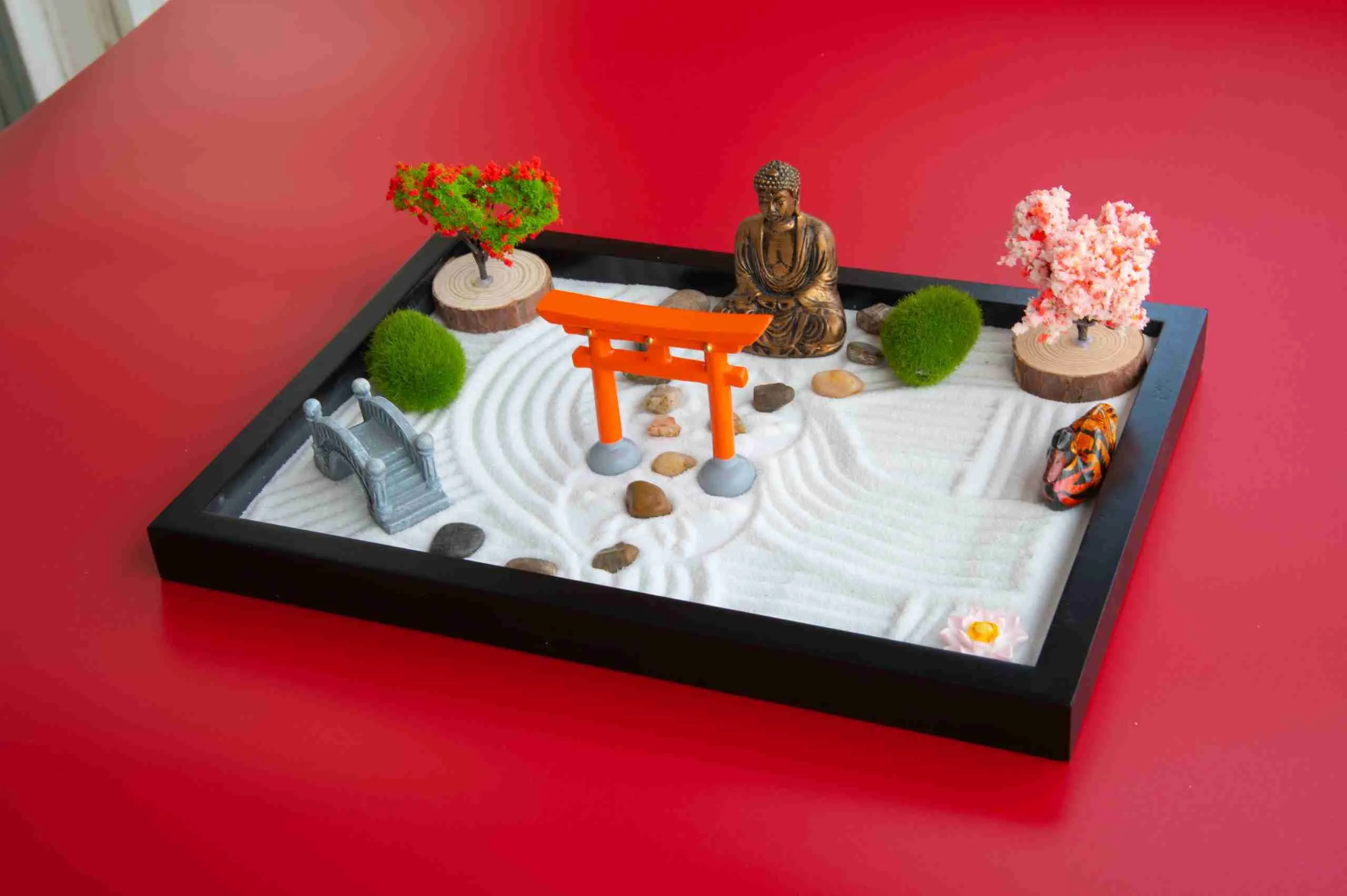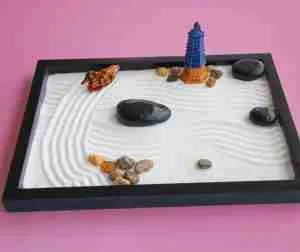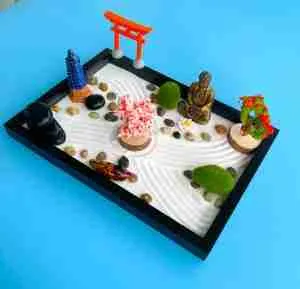The elements of a mini Zen garden are the miniature commercially manufactured items that represent key areas of traditional Japanese gardens. These elements are vital to the understanding of Japanese culture and in designing Zen gardens. Indeed, they are the essential building blocks of miniature Zen gardens.
This article will help you master the surprising beauty of Japanese culture in general and Zen gardens in particular. We will be discussing the significance of the following desktop Zen accessories to Japanese gardens. White sand, buddha, torii gate, pagoda, bridge, duck, flowers, lotus flower, moss, stones, and rocks. At the end of this discussion, you will be well equipped with the knowledge required to purchase or make your own Zen garden. Alright! Let’s get started.
Zen garden sand
Zen garden sand is a type of sand that is made to feel like silk and is often used to create relaxing environments in gardens and other outdoor spaces. Zen sand is made from tiny particles of quartz, which are then blended and shaped into various shapes, especially tiny balls. The small, round shapes of zen sand are said to provide a soothing feel and allow for better airflow, which can help to create a feeling of relaxation in the area in which it is placed.
White sand is often used in desktop Zen gardens to help bring a sense of beauty and serenity to the area in which it is used. The white sand is often used to create the rippling effect of water, ponds, and streams. Carefully raking the sand produces representations of water elements in zen gardens.
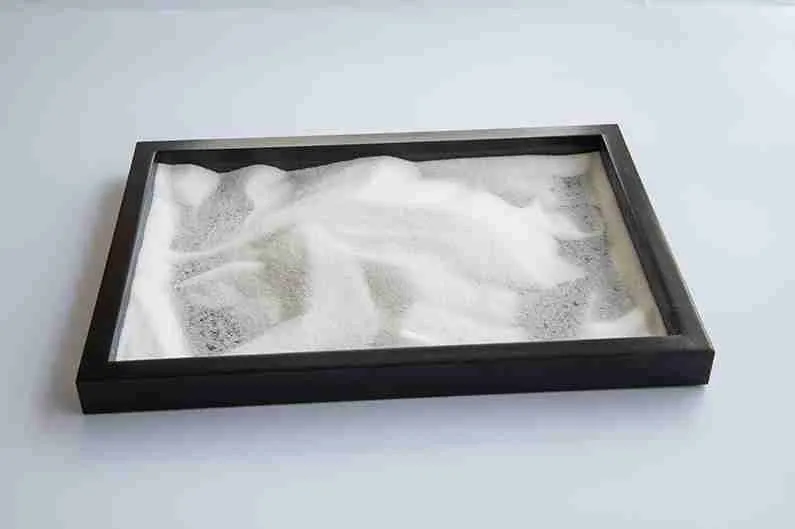
Torii Gate
Torii gates are traditional design elements found in Japanese gardens. They are traditionally used as a gateway between the inside and outside and are often found on the borders of gardens and in front of shrines, facing the direction of the sun. They are usually red, white, and black and have an arch that resembles a shape of a gate. These gates are a symbol of Shintoism, one of the major religions in Japan, and symbolically mark the entry into a spiritual or heavenly world from an earthly world..
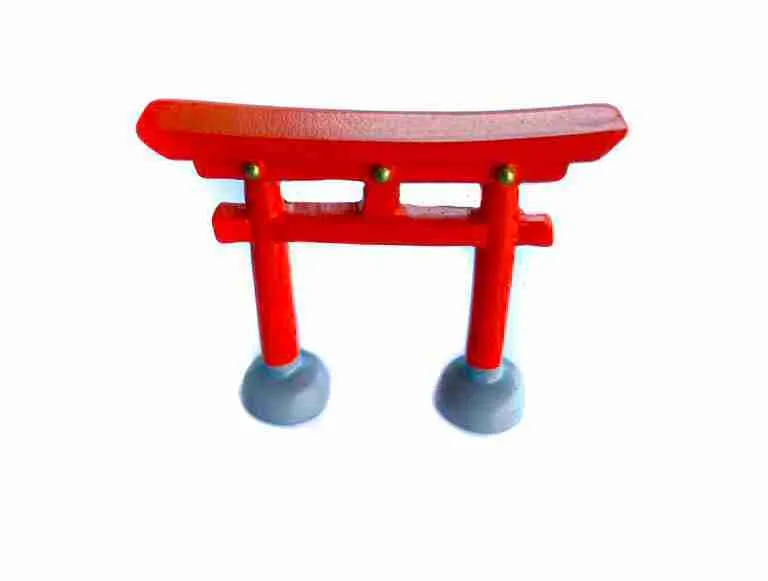
Pagoda
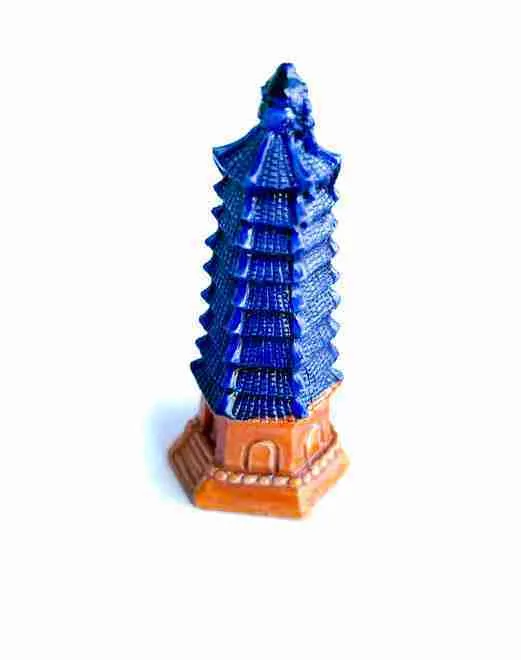
A Pagoda is a type of Buddhist temple that serves as a symbol of power and strength in the Japanese culture when used in Zen gardens. They also symbolize the final steps of meditation and enlightenment. They are often used as a place of worship and are also used as a symbol of status and education.
Buddha
A buddha statue in a Japanese garden is a beautiful reminder of the spiritual values that the Garden has to offer. The statue which could be made of metal, concrete, or stone, is often surrounded by lotus plants and other water features, showing the importance of water in Buddhist beliefs. The figure of the Buddha is also a reminder of the impermanence of life, and the need to find peace in the face of change.

Bridge

A bridge that spans a river may seem like a mundane construct, but in the context of zen gardens, the bridge becomes an important symbol. The zen garden bridge functions as a way to connect the garden to the surrounding environment, and it also provides a space for visitors to walk. The bridge’s design is based on the principle of yin and yang, which states that everything in the world has two opposing qualities. By creating a balance between these two forces, the zen garden bridge allows for a harmonious relationship between the garden and its surroundings.
A Zen garden bridge or Hashi symbolizes the cleansing of one’s earthly burdens after crossing the bridge to achieve a sense of purity, inner peace, and unity with nature.
Duck
Ducks are commonly seen in zen gardens and for a good reason. They’re calm, gentle animals that make great pets. Some people believe that ducks have a connection to the water and that they can help you to connect with your innermost self.
Ducks also add intriguing beauty and creativity to the water element in Zen gardens. A duck also adds intriguing beauty and creativity to the water element in Zen gardens.

Stones and rocks
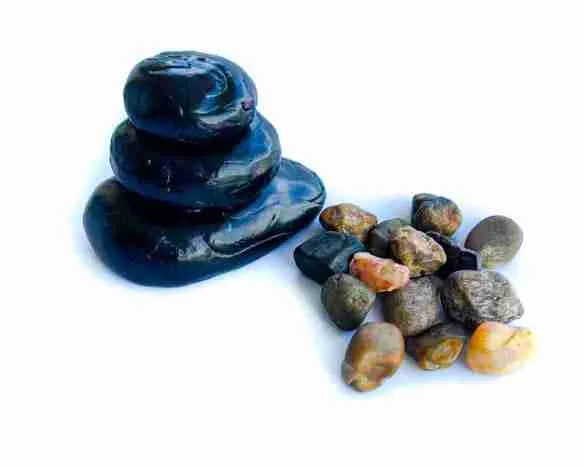
Zen gardens are popular in Japan and China because of the association of stones and rocks with calmness and serenity. In traditional zen gardens, large stones are placed strategically to create a soothing environment. The stones and rocks in a zen garden can symbolize a couple of things, including their ability to create a tranquil atmosphere, their association with the earth, and their spiritual qualities. Stones and rocks also provide a physical space in which to meditate.
Ishi or rocks may also be used to represent the figure of buddha, mountains, groups of islands, and even stepping stone paths.
.
Flowers and mosses (Foliage, lotus flower, and mosses).
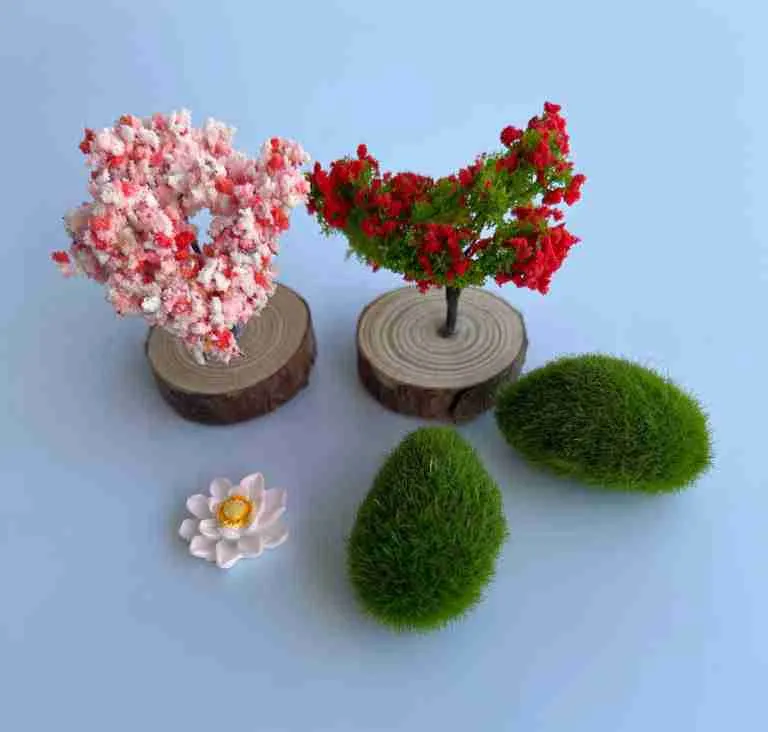
Plants enhance the beauty and naturalness of desk Zen gardens. Flowers represent spiritual growth and purity of body, speech, and mind.
Creatively putting these elements and more together in a wooden Zen tray will produce gorgeous eye-catching designs. The Zen principles of Japanese garden design can help you design with purpose. The process of raking the sand to make lines, spirals, waves, and the ripple effect will help calm your mind, relieve stress, and help you relax. Moreover, adding the accessories in the tray further beautiful your desk garden and make it visually appealing for home and office tabletop decor.
Creatively putting these elements and more together in a wooden Zen tray will produce gorgeous eye-catching designs. The process of raking the sand to make lines, spirals, waves, and the ripple effect will help calm your mind, relieve stress, and help you relax. Moreover, adding the accessories in the tray further beautiful your desk garden and make it visually appealing for home and office tabletop decor.
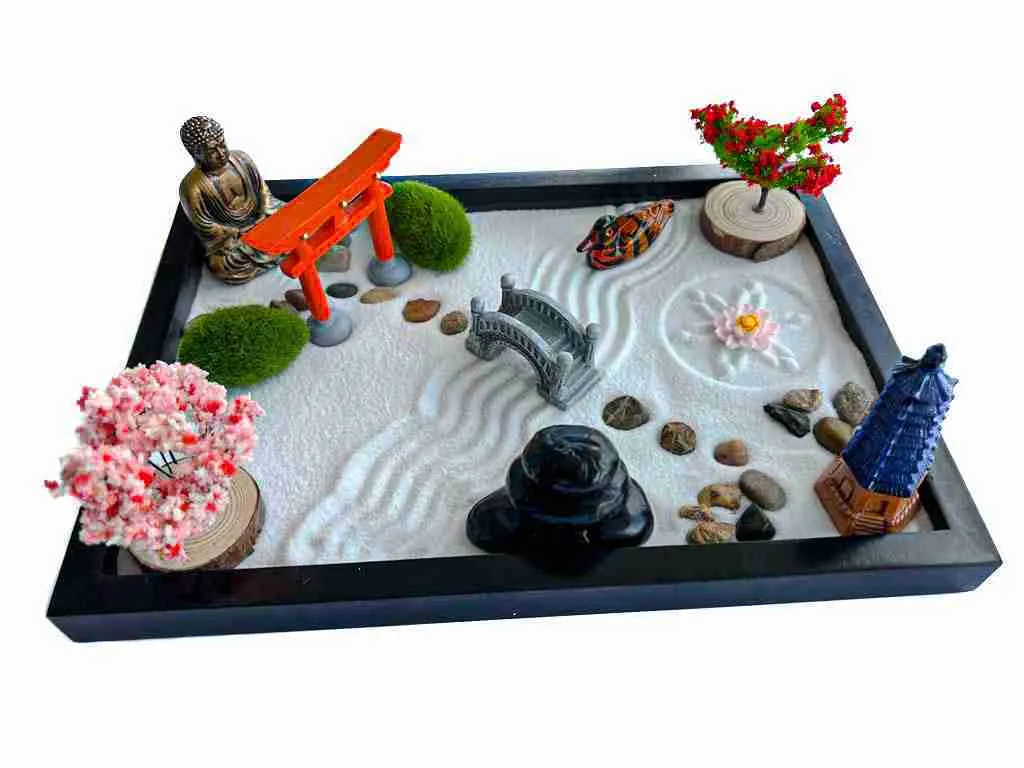
Grab this unique and best Zen garden on Amazon here.
Conclusion
Mini Zen Gardens or desk Zen gardens serve as great tools to practice Zen meditation, especially for people who get easily stressed. Having one on your office desk or home table will come in handy for taking much-required mindfulness breaks to refresh your mind and enjoy its full benefits. As we discussed, you can add the following elements of a Zen garden to symbolize a variety of different attributes common to Japanese gardens. Buddha, torii gates, bridges, sand, pagoda, stones and rocks, and plants amongst others are almost always implemented in both traditional and desk Zen gardens.

